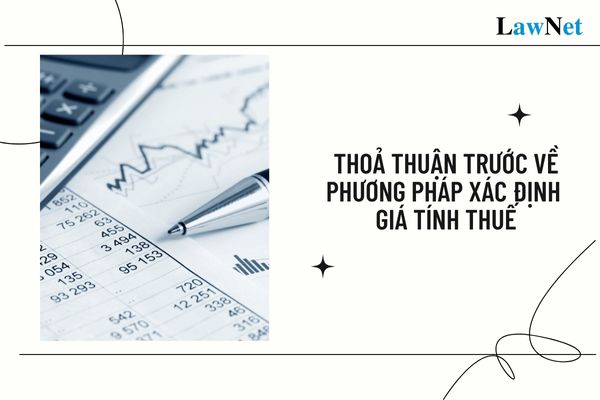What are regulations on advance pricing agreement in Vietnam?
What are regulations on advance pricing agreement in Vietnam?
According to the explanation provided in Clause 16, Article 3 of the 2019 Law on Tax Administration as follows:
Interpretation of Terms
...
16. An advance pricing agreement is a written agreement between the tax authority and the taxpayer, or between the tax authority, the taxpayer, and a foreign tax authority, in a jurisdiction with which Vietnam has signed an agreement to avoid double taxation and prevent tax evasion on income tax for a specified period, wherein the criteria for tax calculation and methods for determining taxable prices, or prices based on market value, are clearly specified. An advance pricing agreement is established before the taxpayer submits the tax declaration dossier.
...
An advance pricing agreement is a written agreement between the tax authority and the taxpayer, or between the tax authority, the taxpayer, and a foreign tax authority, in a jurisdiction with which Vietnam has signed an agreement to avoid double taxation and prevent tax evasion on income tax for a specified period, wherein the criteria for tax calculation and methods for determining taxable prices, or prices based on market value, are clearly specified.
An advance pricing agreement is established before the taxpayer submits the tax declaration dossier.

What are regulations on advance pricing agreement in Vietnam?
What are rules for tax declaration for the advance pricing agreement in Vietnam?
Based on Clause 6, Article 42 of the 2019 Law on Tax Administration. To be specific:
Rules for tax declaration and Calculation
...
6. The rules for tax declaration for the advance pricing agreement are stipulated as follows:
a) The application of the advance pricing agreement is executed at the request of the taxpayer and upon the agreement between the tax authority and the taxpayer, through unilateral, bilateral, and multilateral agreements among the tax authority, the taxpayer, and related foreign tax authorities;
b) The application of the advance pricing agreement must be based on the taxpayer's information and commercial databases with legal verification;
c) The application of the advance pricing agreement must be approved by the Minister of Finance before implementation; bilateral and multilateral agreements involving foreign tax authorities are executed according to international treaties and agreements.
The rules for tax declaration for the advance pricing agreement are as follows:
(1) The application of the advance pricing agreement is executed at the request of the taxpayer and upon the agreement between the tax authority and the taxpayer, through unilateral, bilateral, and multilateral agreements among the tax authority, the taxpayer, and related foreign tax authorities;
(2) The application of the advance pricing agreement must be based on the taxpayer's information and commercial databases with legal verification;
(3) The application of the advance pricing agreement must be approved by the Minister of Finance before implementation;
For bilateral and multilateral agreements involving foreign tax authorities, execution is according to international treaties and agreements.
What are the duties of the tax authority in Vietnam?
The duties of the tax authority are stipulated in Article 18 of the 2019 Law on Tax Administration specifically as follows:
(1) Organize the implementation of tax collection management and other revenues belonging to the state budget as prescribed by tax laws and other relevant legal regulations.
(2) Propagate, disseminate, and guide tax laws; publicize tax procedures at the headquarters, on electronic information sites of the tax authority, and through mass media.
(3) Explain and provide information related to the determination of tax obligations to taxpayers; the tax authority is responsible for publicizing the tax amounts payable by business households and individual businesses within the commune-level area.
(4) Keep taxpayers' information confidential, except for information provided to competent authorities or information disclosed publicly according to legal regulations.
(5) Implement tax exemption; tax reduction; write-off of tax debts, late payment interests, fines; exemption of late payment interests, fines; non-calculation of late payment interests; extension of tax payment deadlines; installment of tax debt payments; suspension of tax debt collection, and non-collection; handling of overpaid taxes, late payment interests, fines; tax refunds according to this Law and other relevant legal regulations.
(6) Confirm the fulfillment of taxpayers' tax obligations when requested according to legal regulations.
(7) Resolve complaints and denunciations relating to the implementation of tax law according to authority.
(8) Deliver minutes, conclusions, and tax handling decisions after tax inspection, tax audit to taxpayers and explain when requested.
(9) Compensate for damage to taxpayers in accordance with state compensation liability laws.
(10) Assess to determine the amount of tax payable by taxpayers upon request from competent state agencies.
(11) Develop and organize an electronic information system and apply information technology to conduct electronic transactions in the tax field.

